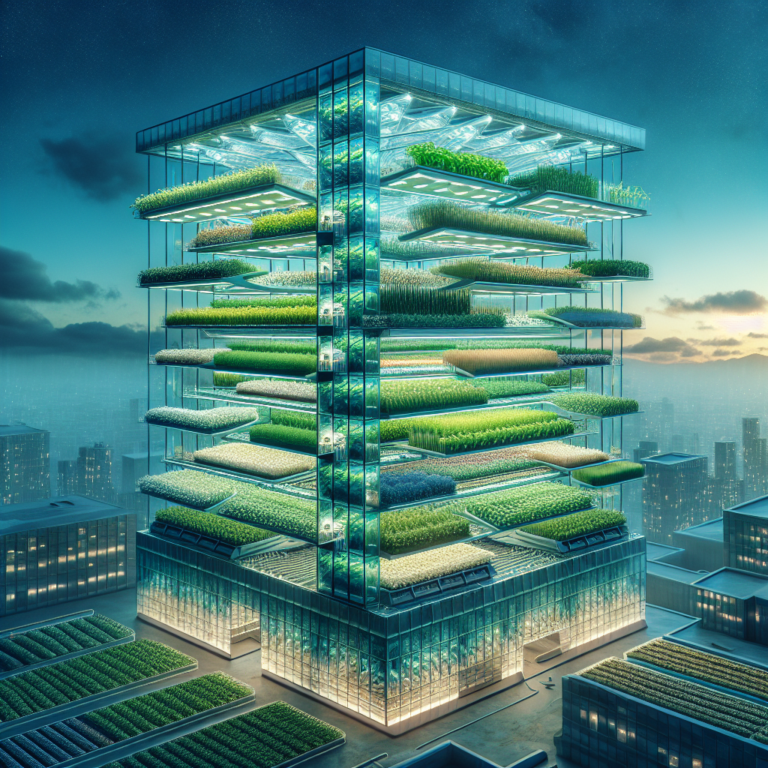Vertical farming is a revolutionary concept that is changing the way we produce food and ensuring that we can feed a growing global population in a sustainable way. This innovative farming method involves growing crops in vertically stacked layers in a controlled environment, such as a skyscraper or shipping container. Vertical farming uses advanced technologies such as artificial lighting, hydroponics, and aeroponics to optimize crop yields and reduce water and pesticide usage.
One of the main advantages of vertical farming is its ability to produce high yields of crops in a small space. This means that vertical farms can be built in urban areas, close to where the food is consumed, reducing the need for long-distance transportation and decreasing the carbon footprint of food production. Vertical farming also allows for year-round production, regardless of the weather, ensuring a consistent and reliable food supply.
Vertical farming is also more resource-efficient than traditional farming methods. By growing crops indoors, vertical farms can control factors such as temperature, humidity, and lighting to create the ideal growing conditions for plants. This means that vertical farms use less water and pesticides than conventional farming, making them more environmentally friendly and sustainable in the long term.
In addition to being more environmentally friendly, vertical farming also has the potential to address food security issues. With the world’s population expected to reach 9 billion by 2050, there is a growing need for innovative solutions to ensure that everyone has access to nutritious and affordable food. Vertical farming can help meet this demand by increasing the efficiency of food production and allowing for the cultivation of a wide variety of crops in a small space.
Vertical farming is already making waves in the food industry, with a growing number of companies and entrepreneurs investing in this technology. Some vertical farms are even producing crops such as leafy greens, herbs, and strawberries at a commercial scale, demonstrating the viability of this method of food production.
Overall, vertical farming has the potential to revolutionize the future of food production by increasing efficiency, reducing environmental impact, and ensuring food security for a growing global population. As technology continues to advance, we can expect to see even more innovative solutions emerge in the realm of vertical farming, further shaping the way we grow and consume food.










